
Summer is about to kick into high gear. And while many of us don’t have the bandwidth to plan an epic vacation to some of the least visited or remote National Parks in the United States, we still want some solitude on our adventures. That’s where “lesser known” National Parks come in, and there’s still plenty of time to book a trip to one of these gems.
Grace Lee, executive director of the National Park Trust says that “Although there are 424 national park units, 49% of the annual 300 million visitors explore just 25 of those sites.” Of the 63 major National Parks in the NPS system, the National Park Service reports that just 8 of the top parks are responsible for 25% of the visitation numbers.
Obviously, traveling over 5,000 miles from the mainland to visit American Samoa (the least visited park in 2022) or hitting up certain parks in Alaska that don’t have roads isn’t for the faint at heart. That’s why the National Park Service has been promoting these smaller and less-trafficked parks in order to increase visitation. And it’s paying off.
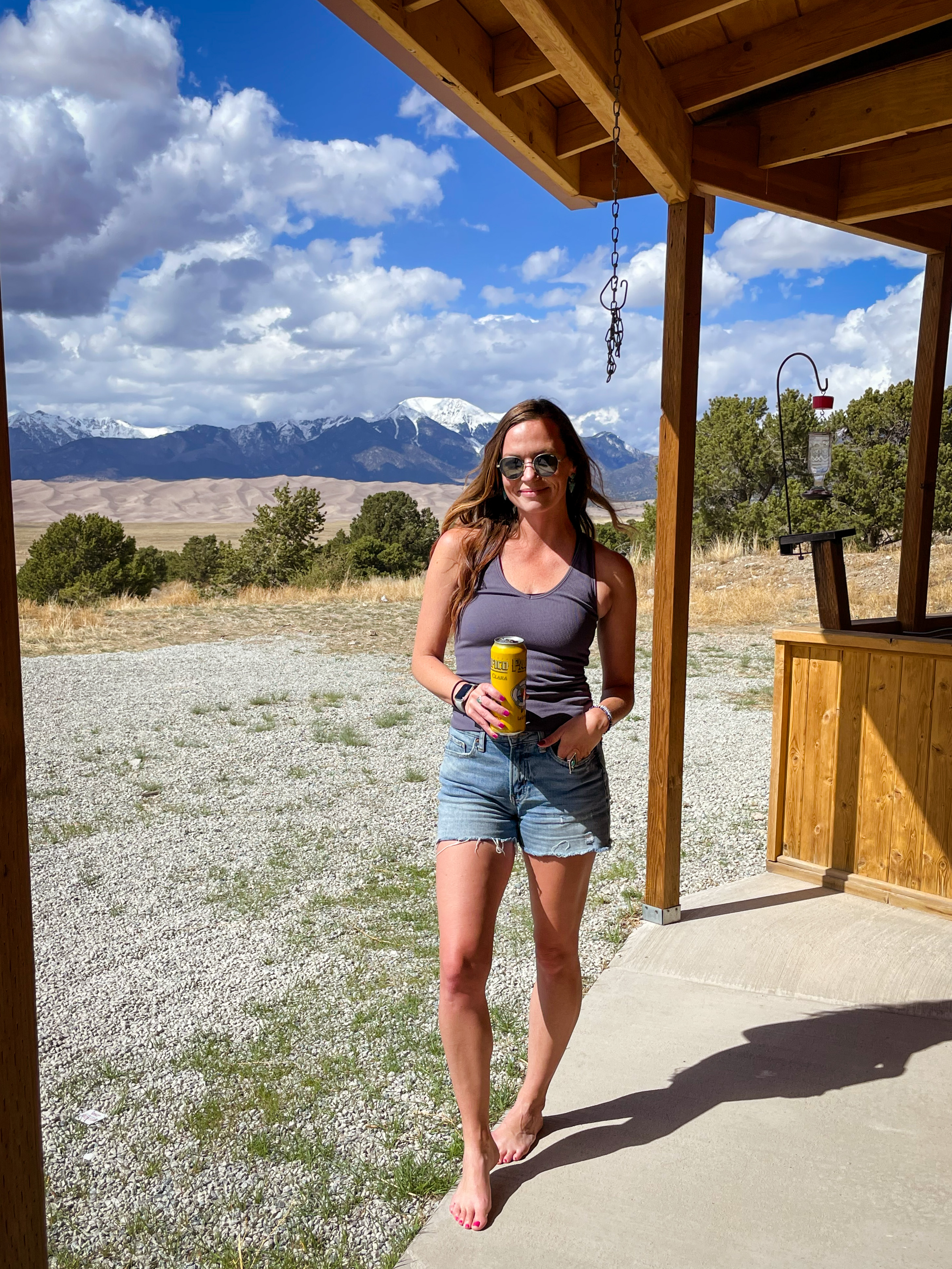
This summer, Pacifico is partnering with National Park Trust to help preserve the most populous national parks and raise awareness for lesser-known parks. In the process, Pacifico has donated to preservation efforts, along with providing a directory of lesser-known parks with ideas of what to do while you’re there and incentivizing adventurers to visit. So where to begin?
I always recommend Great Sand Dunes National Park in Colorado as a slightly off-the-beaten-path destination. While the park can still see crowds in the summer months, it is nowhere near the levels of Rocky Mountain National Park to the north or some of the Utah parks to the West. And with the miles of towering sand dunes – the tallest in North America – it’s easy to get away from the crowds. Here’s how to visit in 2023.
WHY SUMMER?
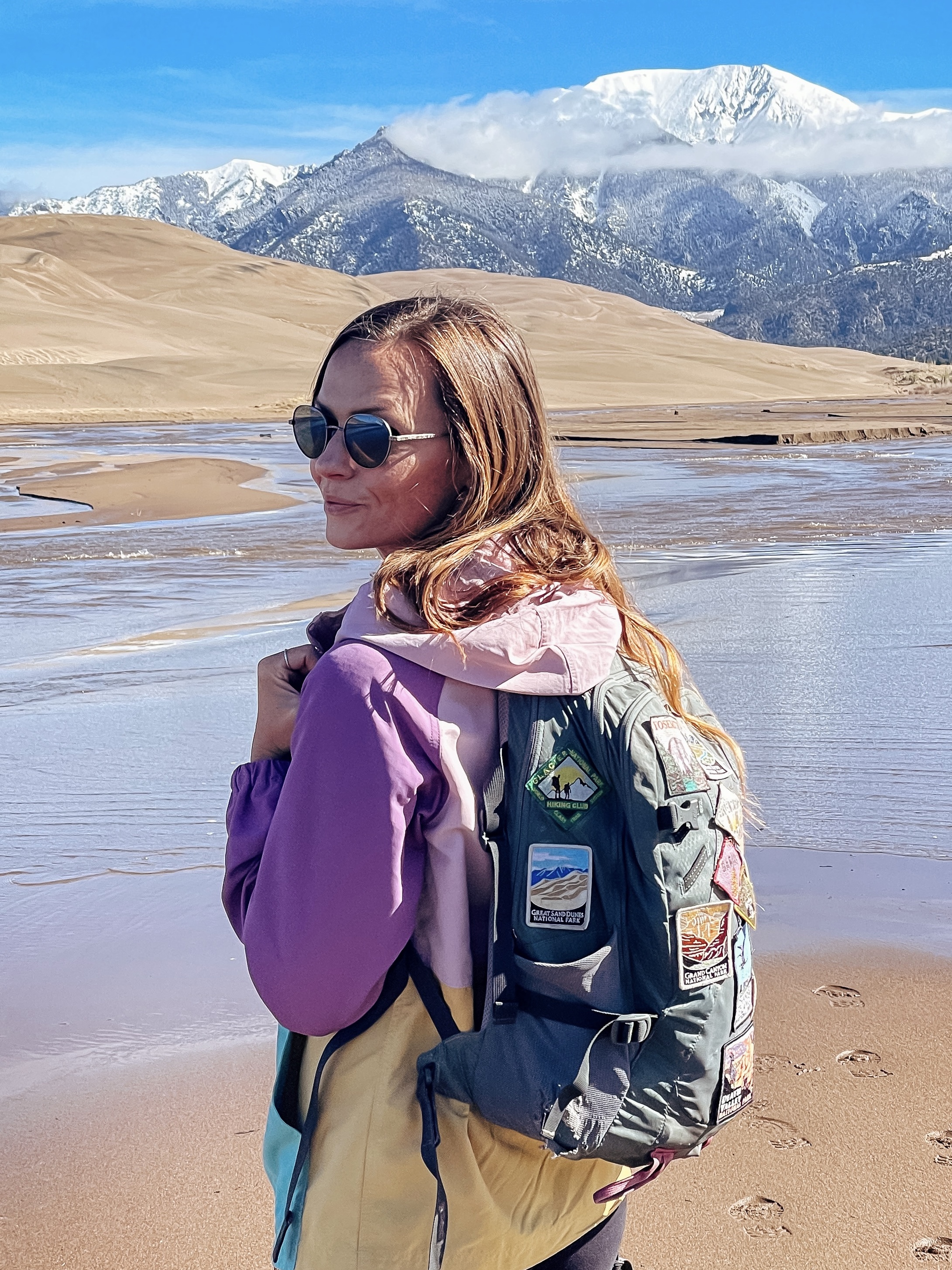
Great Sand Dunes National Park is a stunning and otherworldly landscape that is truly like nowhere else in the country. With shimmering sand dunes surrounded by the majestic Sangre de Cristo Mountains, it is a sight everyone should see at least once in their lifetimes.
But why summer specifically? For the beach, of course. While Colorado boasts no oceans and few “beaches” of any kind, many Colorado natives make the yearly trek to the park to lounge along the banks of Medano Creek – the snowmelt-formed creek that flows across the dunes in late spring and early summer. Visitors bring their pool toys, sand castle forms, and umbrellas to have a relaxing day on the most unique beach you’re likely to ever see.
HOW TO GET THERE:
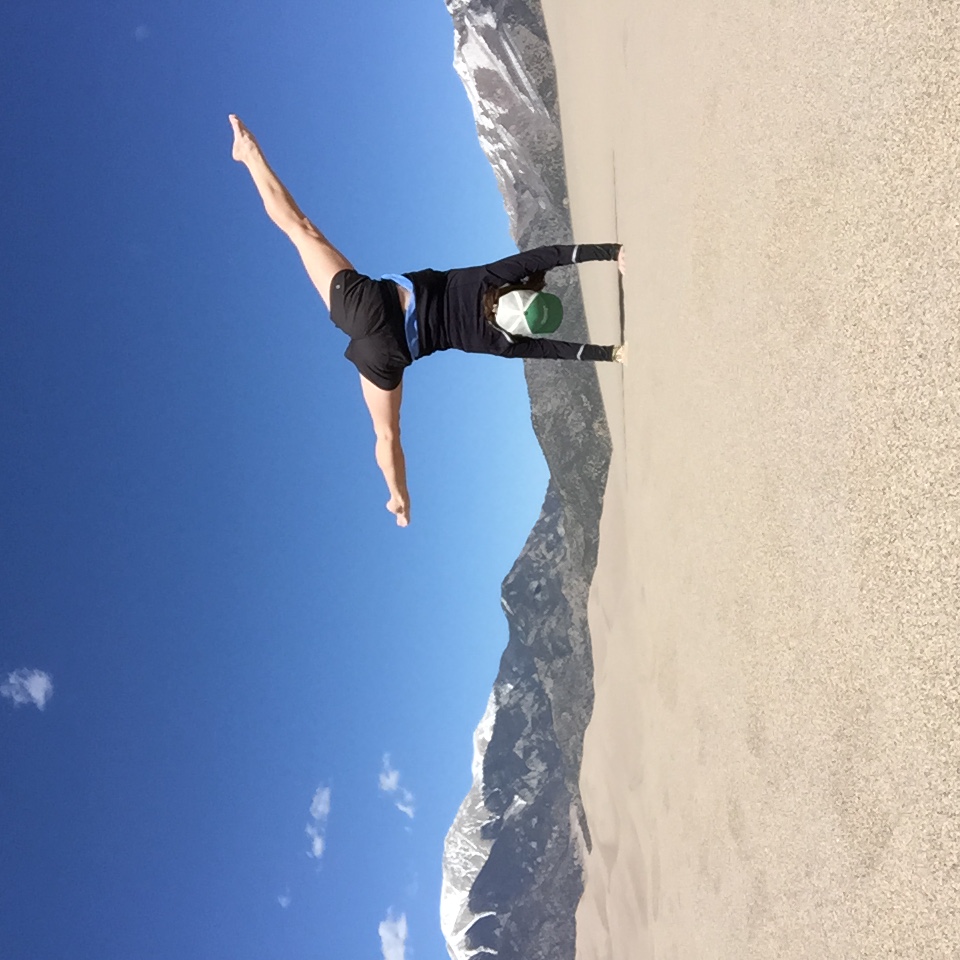
Many of the lesser-visited National Parks are that way due to proximity – or lack of – to major cities or thoroughfares, and Great Sand Dunes is no different. While it is only just under 80 miles off I-25 in Southern Colorado, it feels (and is) fairly remote. If you’re flying into Denver International Airport, it’s 252 miles, or just over a 4-hour drive down I-25.
If you have some time, I recommend traveling on US 287 which will add about a half hour to the drive (without stops) but will wind you through remarkable mountain passes and the hip and outdoorsy small towns of Buena Vista, Salida, and Fairplay – all solid facsimiles for the Town of South Park.
WHAT TO DO:
HIKE:
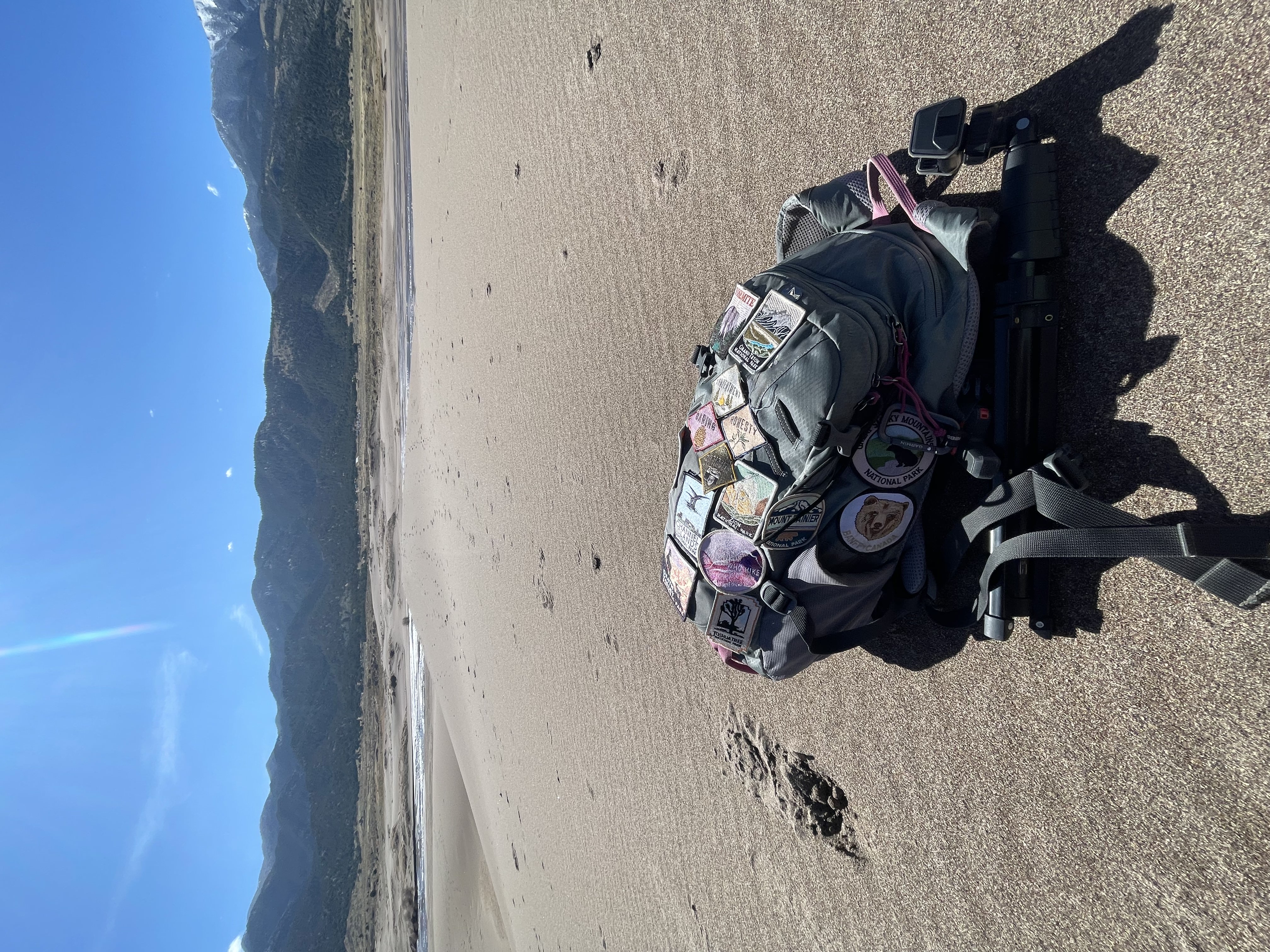
Hike to the top of the tallest sand dunes in North America. While there are no designated trails in the park, there are named dunes you can – and should – climb up. High Dune, while actually not the highest dune in the park, is what many people choose to summit as it is the most visible from the parking lot. Hidden Dune and Star Dune are both currently tied for the title of “tallest dune in North America” at 741 ft. They’re both going to take over 6 hours to complete and can be very strenuous in the summer months – but then you can tell everyone you summited the tallest sand dunes in North America.
There are also several forested and alpine trails in the park that provide some shade for those hot summer days. Medano Creek Trailhead starts at over 10,000 feet and leads to a 13,297 ft summit for advanced hikers. Mosca Pass Trail winds through aspen and evergreen forest along a creek to a small mountain pass.
Another place to hike is just outside the park boundaries at Zapata Falls Trail. The just 0.9-mile trail leads to a gorgeous 25-foot waterfall that is impressive in any season.
SANDBOARD AND SANDSLED:
As you near Great Sand Dunes National Park you’ll see at least one long line – the line for sandboard and sand sled rentals at Great Sand Dunes Oasis just outside of the park. You can rent a board or sled for $20 per day at the Oasis or at Great Sand Dunes Lodge if you’re a guest. Then take it to the dunes for the thrill of a lifetime.
Sandboarding and sand sledding are permitted anywhere on the dunes and it’s a heart-pumping activity you’ll never forget.
BEACH:
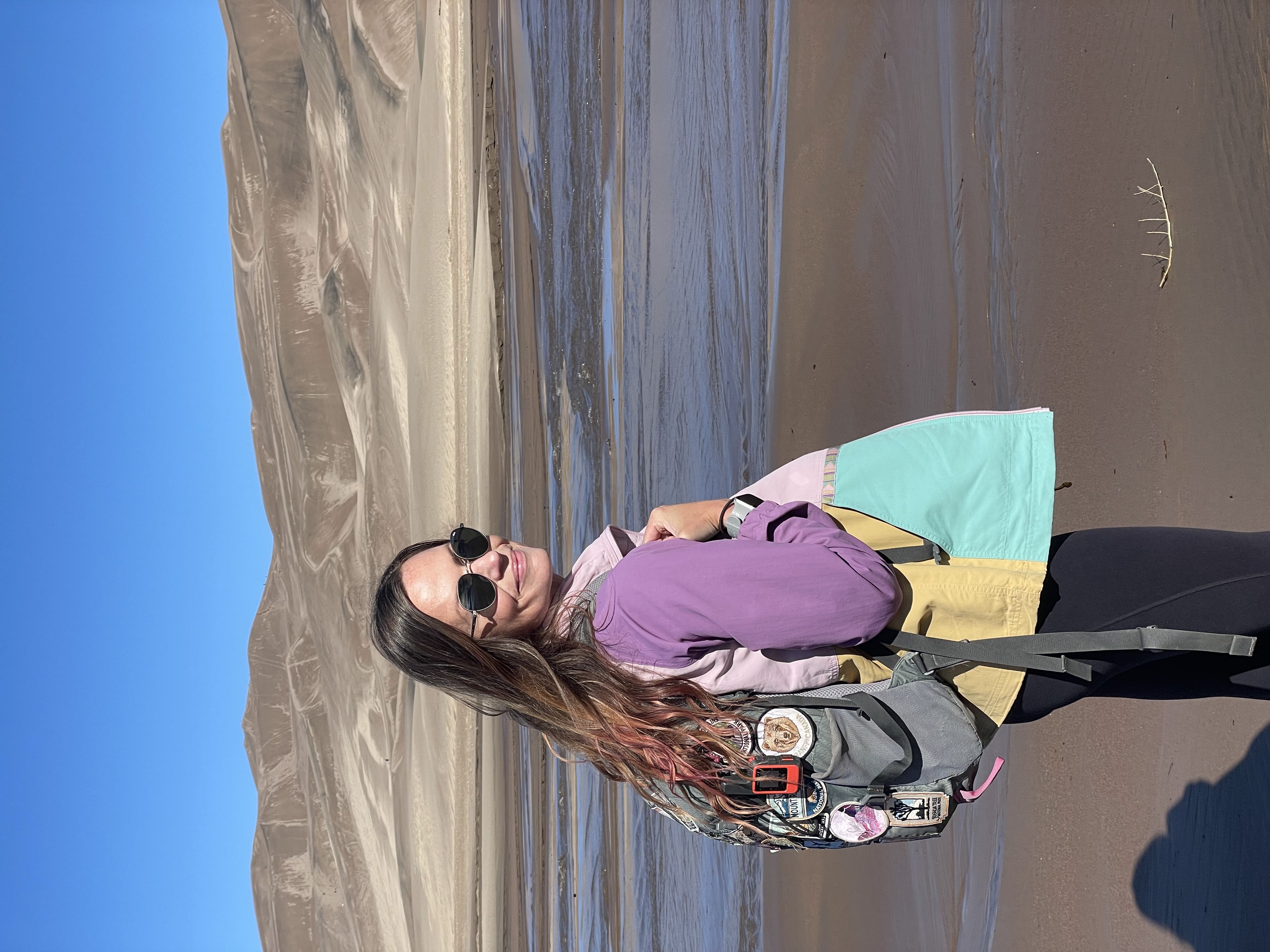
Have a beach day on Medano Creek. My first visit to Great Sand Dunes was with my family when I must have been around eight years old. My only memory is of shock at the “beach” surrounded by mountains. There were people cruising by on pool floats with their beach chairs and umbrellas set up to beat the heat – it all felt like it must be a hallucination of some kind.
But thankfully, it’s no hallucination, and it’s one of the best places to spend a hot Colorado summer day. While the creek is seasonal, created from snowmelt in the nearby mountains, it does lead to above-average crowding on early summer weekends. If you can get to the creek try for a weekday, or earlier in the day to beat the crowds.
STARGAZE:
Great Sand Dunes is an official “International Dark Sky Park”, a designation made by the International Dark Sky Association for parks that meet strict standards for sky darkness. The Milky Way is most visible during late summer, and evening ranger programs are often scheduled for the summer months.
WHERE TO STAY:
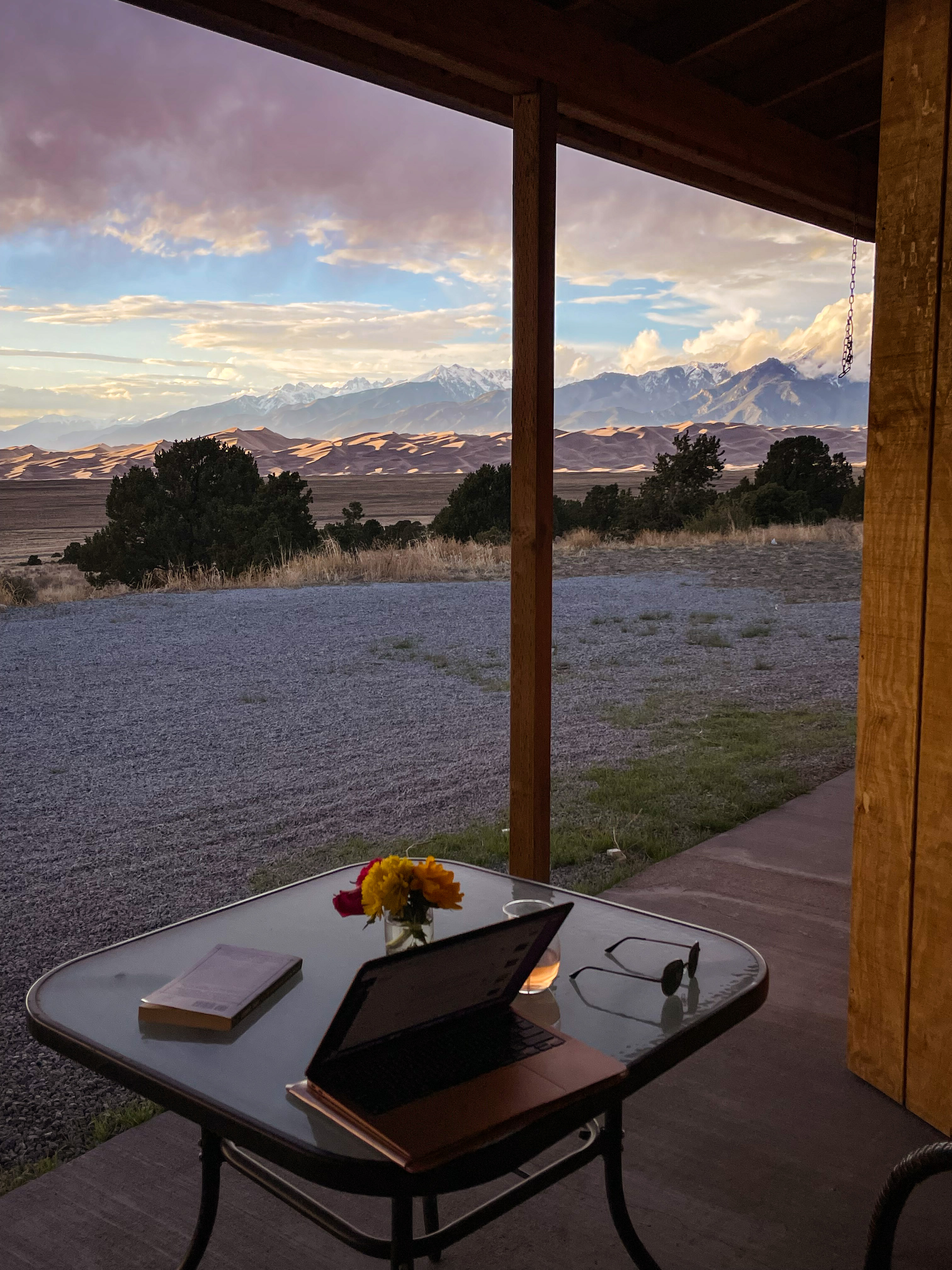
This park is fairly remote, but you still have plenty of options for places to stay near the park.
I stayed at Great Sand Dunes Lodge on my last visit – it has the best location, at the foot of the sand dunes between the visitor center and Zapata Falls. The rooms are basic, but you’re there for proximity and views – and boy does this lodge have them. Every room has a patio looking out onto the dunes where hummingbirds often zip by while you watch the sunset with a brew over the dunes and mountains in the distance. The Lodge provides a basic breakfast and guests can also rent sandboards or sleds which is very convenient.
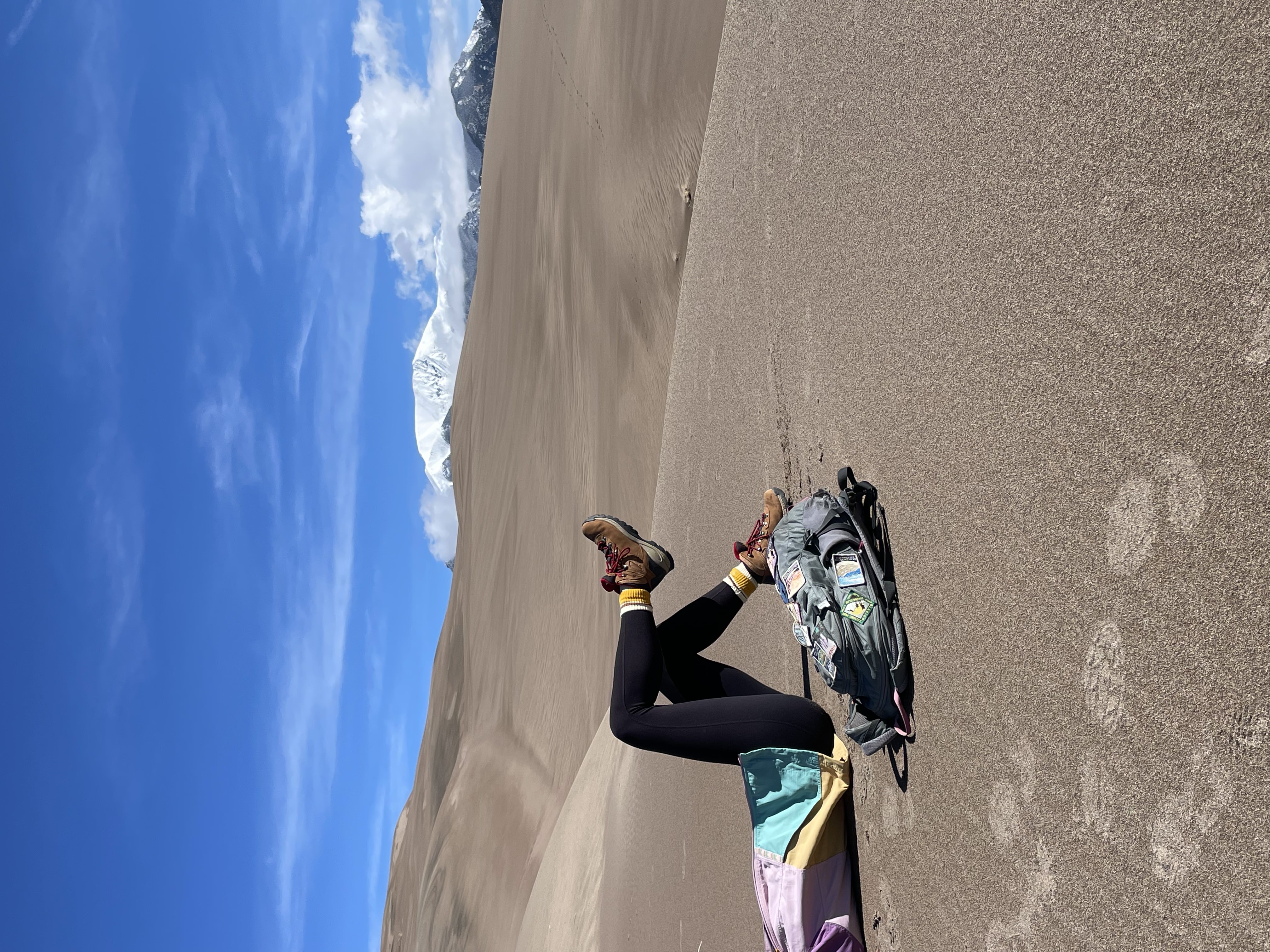
Just below the lodge lies the Great Sand Dunes Oasis store and RV park with camping and lodging in camping cabins available. There is also a restaurant and general store on site.
Just a few miles down the road lies Zapata Ranch, a ranch owned by The Nature Conservancy and managed by Ranchlands where guests can have an all-inclusive experience. The 15-bedroom lodge hosts guests for multiple night stays, with access to a plethora of activities including horseback riding, rock climbing, whitewater rafting, massages, and fly fishing. The ranch is home to a conservation herd of 2,000 bison and guests are welcome to work alongside the ranchers and wranglers for a true Western experience.
WHERE TO EXPLORE IN THE AREA:
The sand dunes aren’t all there is to see in the San Luis Valley of Colorado, the area is up and coming with quirky attractions and lots of open spaces.
Stop by Joyful Journey Hot Springs for a soak after a day of climbing the dunes, about an hour north of the park. You can stay the night in a yurt, tipi, or lodge, or simply spend the day in one of the three pools or two jacuzzis. Spa treatments are offered along with yoga classes and moon circles.
The UFO Watchtower is a unique roadside attraction, with visitors claiming to have had UFO sightings at this location over the years. The observation tower and campground are just 30 miles west of the park.
